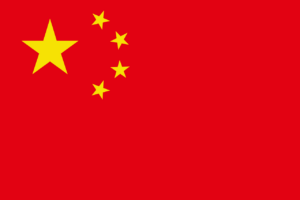Previous
Cargoes
By the trade,
With the trade
Previous cargo requirements to consider
Previous cargoes carried in ships tank/s can be a possible source of contamination. Even if the tank has seemingly been adequately cleaned, residues from cargoes can remain entrapped in the tank coatings or in areas that are hard to access and clean. The “FOSFA Qualifications and Operational Procedures for Ships Engaged in the Carriage of Oils and Fats in Bulk for Edible and Oleo-Chemical Use” describes the restrictions on what may have been carried as the immediate previous cargo, along with the restrictions beyond the immediate previous cargoes. The Federation’s standard contract terms incorporate reference to a list of banned substances which may not be carried as the immediate last cargo prior to loading oils and fats. These terms apply unless there has been an express agreement that is different to the standard terms.
An alternative optional clause (AS9) added to the contract requests that the immediate previous cargo shall be restricted to substances appearing on the list of acceptable immediate previous cargoes, comprising foodstuffs, processing aids and other similar materials known to be compatible with oils and fats. It is important that both parties are clear, at the time the contract is made, about which list is to apply.
Furthermore, the lists are subject to change considering any new information or requests made, and it is essential for all parties to ensure they have access to the latest edition of these lists. Irrespective of the date of the contract, it is the lists in force at the date/s of the bill of lading which are deemed to apply.

When determining the tank’s suitability to carry oils and fats traded on a FOSFA contract the following needs to be considered:
- Contract terms:
- List of Banned Immediate previous cargoes
- List of Acceptable Immediate previous cargoes
- The restrictions beyond the immediate previous cargo
- The tank’s fill volume: The first > 60% fill volume = Qualifying cargo
- The tank type and/or coating
- Requirements of the destination (eg EU, China, USA and others)
The previous cargo requirements of other
countries or regions
There are a number of previous cargoes requirements and lists from other countries, regions and or organisations. Although there are many similarities in the lists of banned and/or acceptable previous cargo substances, some differences may occur. It is therefore important to take note of each list depending on the region or area that the vegetable oils are imported into or that is used in your contract when shipping vegetable or animal fats and oils.
The lists are available below but no guarantee can be given that this is the latest information and versions available and therefore care should be taken that the latest version and information is used. Although we will undertake to have the latest version of the lists on the website, the Federation will not be held responsible should later information or versions of the lists below be available.
European Union
 The European Commission Regulation (EU) Regulation No 579/2014 that provides derogation as regards the transport of liquid oils and fats by sea from the full dedication required for transporting foodstuffs was revised and published in 2014. The list is periodically amended and the latest consolidated version of Regulation 579/2014 should be used.
The European Commission Regulation (EU) Regulation No 579/2014 that provides derogation as regards the transport of liquid oils and fats by sea from the full dedication required for transporting foodstuffs was revised and published in 2014. The list is periodically amended and the latest consolidated version of Regulation 579/2014 should be used.
The European Union have their own strict list of Acceptable previous cargoes and have different conditions for “oils or fats which are to be processed” (used with FOSFA EU1 clause) and “oils and fats which are not to be further processed” (used with FOSFA EU2 clause).
CODEX
 The CODEX Committee on Fats and Oils (CCFO) has published a Code of Practise for the Storage and Transport of Edible Fats and Oils in bulk, which includes the CODEX List of Acceptable Previous Cargoes as well as CODEX List of Banned Immediate Previous Cargoes.
The CODEX Committee on Fats and Oils (CCFO) has published a Code of Practise for the Storage and Transport of Edible Fats and Oils in bulk, which includes the CODEX List of Acceptable Previous Cargoes as well as CODEX List of Banned Immediate Previous Cargoes.
The FAO/WHO Joint Expert Committee on Food Additives (JECFA) has evaluated a number of the substances that are provisionally on the current CODEX Acceptable list and their reports (91st and 92nd reports) on the decisions are available at the link here.
National Institute of Oilseed Products - NIOP
 The USA National Institute of Oilseed Products (NIOP) have rules for the trade and transportation of uniform high quality vegetable oil and oilseeds. These rules include acceptable NIOP Prior Cargo lists. NIOP have two lists:
The USA National Institute of Oilseed Products (NIOP) have rules for the trade and transportation of uniform high quality vegetable oil and oilseeds. These rules include acceptable NIOP Prior Cargo lists. NIOP have two lists:
LIST No. 1 are acceptable prior cargoes for transported edible oils, which may or may not be further processed prior to use (e.g refined oils or intended for direct human consumption).
LIST No. 2 are acceptable prior cargoes for edible oils, which will undergo further processing prior to use (eg crude oils).
CHINA

China’s AQSIQ announced the requirements of transportation of imported edible vegetable oil in bulk in 2012.
The following requirements are listed:
- The vessel tank must be produced with inert materials suitable for food contact, preferably stainless steel. The coating of coated tanks must be of inert material such as epoxy resin.
- For the import of vegetable oil in bulk, the last three cargoes shipped must be listed.
- The immediate previous cargo must be listed on the List of permitted (acceptable) goods (Appendix 1)
- The two previous cargoes/goods shipped prior to the immediate previous cargo (e.g. 2nd and 3rd cargoes) must NOT appear on the List of prohibited goods (Appendix 2).
Announcement 80 of AQSIQ on the Requirement of Transportation Vehicles of Imported Edible Vegetable Oil in Bulk (unofficial document and translation)